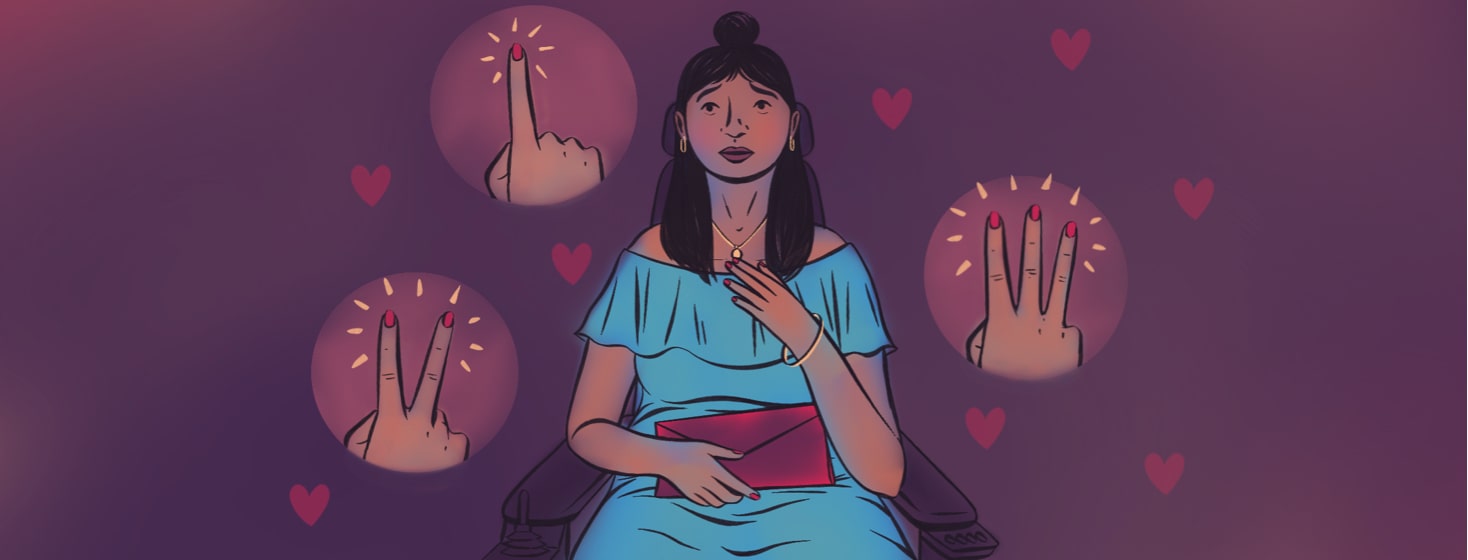Tips on Dating with a Disability
I know every person‘s story is different, but the common denominator is the desire to be loved in most people's lives. As a disabled adult, the majority of questions I receive are in regards to dating, marriage, relationships, etc.
I am lucky to say I have been in a healthy relationship for the past 10 married years and 17 “together” years.
Dating with spinal muscular atrophy
But let’s rewind and start with the very beginning...the dating years.
Everyone reading this will be in a different season of their dating life. Some have never dated. Some have been on MANY dates. Some are in a long-lasting, blissful relationship, while others hate even hearing the word “dating.”
I know the topic of dating can be cringe-worthy for some. Bad experiences, unhealthy expectations, lack of self-worth, and confidence can all play a role in how we view relationships.
But I wanted to encourage ANYONE out there that if you have a desire in your heart to be in a romantic relationship, I promise there’s someone out there.
The most important thing is to be yourself
If you are in the dating game--whether you’re an online dating app kind-of-person, or old-fashioned, or here’s my number “call me sometime” person, I have the same advice for all of you. BE YOURSELF.
You may be thinking, “duh, I’m not out here to catfish anyone,” but it’s so easy to accidentally fall into “faux” personalities when in the early stages of dating.
Your disability is part of you. A beautiful part of you. But it also doesn’t make up ALL of you.
I promise when you find the right person, they will fall in love with you. And that “you,” encompasses your disability, but also so much more. BE YOU.
What are your non-negotiables?
It’s important to enter the dating world fully aware of who you are, and what you want out of the relationship. Now I know we are all on a constant discovery of self, but having a good understanding of your desires, your needs, and your expectations while entering a dating relationship can help the outcome immensely.
Now I’m not saying sit down on a blind date with a five-year trajectory plan. Because that might scare them.
There are the traditional aspects of dating which everybody goes through. My advice for anyone dating, whether in the disabled community or not, would be to figure out what your non-negotiables are.
For example, moral standards, major future plans, etc. But also be open to preferences that are negotiable, such as hobbies or physical characteristics.
Starting a relationship with someone who does not have some of those traits you initially envisioned might be a good thing. They could bring beautiful assets to the relationship that you never expected.
Assistance with practical needs
Being disabled, we have some practical needs and accessibility challenges that intertwine with a dating relationship. If you need help with something, such as cutting your food or pushing your chair in, that’s OK.
How this person will respond is usually a good indicator of how the relationship will go. If they have a problem with helping you, that’s probably not a good sign.
However, if this is a new concept for them, don’t automatically assume it won’t work. They may just need some guidance in this area if dating someone disabled is new for them.
You’ll have a learning curve of teaching somebody about that side of your life, but it’s not about that.
There are going to be things we face as disabled adults that are different, but there are also some areas that are just part of dating in general.
Be yourself, stick to your non-negotiables, and be willing to work through differences when dating someone. And most importantly, have fun!

Join the conversation